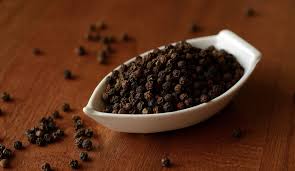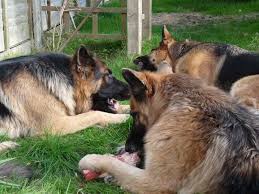Can Dogs Eat Black Pepper?
Dogs can nibble on numerous human food varieties, however, a few food varieties that are good for humans is not preferred for dogs. It’s critical to make sure that healthy food varieties including spices and whole foods are fed to your dog. People frequently share their own food with their dogs, and our food is generally seasoned, regardless of whether it’s slightly salt and pepper.
What is Black Pepper?
Black pepper is the dried form of its fruit known as Peppercorn. It is used as a whole spice or grounded and used as a seasoning. Black pepper is a common ingredient in Indian and Asian cuisines to add flavor and spiciness to the food.
Peppercorns have been used since ancient days both as a seasoning and conventional medication. Black pepper is the world’s most traded flavor.
The USDA recognizes black pepper as a moderate source of Vitamin K, iron, and manganese, and a good source of dietary fiber. It has seen use in medicine to treat constipation, insomnia, and toothaches, as well.
Black pepper offers some potential medical advantages to people and dogs,
• Control glucose levels: Pepper helps in balancing blood sugar levels. Especially if your dog has diabetes give it a little bit of pepper once in a while, as it controls blood sugar level.
• Enhanced brain function: Black pepper has the property to possibly improve brain function. It could make your dog much more trainable.
• Cancer-battling properties: Researches have shown that black pepper may have certain cancer battling properties, benefitting dogs.
• Strengthened immune system: Black pepper has an antioxidant property that can help your dog to maintain a good immune system. A good immune system means it is less likely to get sick.
Can Dogs eat black peppercorn?
Generally, black pepper is not toxic for dogs. If you want to add spice flavor to your dog’s food black pepper is not a good choice. However, consuming black pepper by dogs in small quantities would do no harm to them. Consuming large quantities by dogs can cause stomach upset. Vets normally don’t recommend black pepper for dogs.
Is black pepper bad for dogs?
AVMA has listed many food materials available in every house which can be unsafe for your dog.
The piperine content in the black pepper gives its characteristic aroma and flavor. Overconsumption of black pepper can be unsafe for a dog’s digestive system.
The piperine comes from the chemical family Capsaicin. It is also found in a variety of pepper and chilies like paprika, bell pepper, white pepper, chili powders, and black pepper.
Overconsumption of capsaicin can cause the below symptoms:
- Stomach throb
- diarrhea
- Vomiting
- Other gastrointestinal issues
In any case, these impacts happen just if a high quantity of capsaicin is consumed by your dog. It is a smart move to check the amount of capsaicin consumed by your dog. If you don’t, your dog may find more long-haul gastrointestinal issues and dehydration.
Causes hemorrhoids: Over intake of black pepper can cause irritation of rectal or colonic mucosa, which leads to hemorrhoids.
Respiratory issues: Inhaling black pepper can cause irritation in the delicate lining of the lungs and respiratory tract. This can lead to the development of asthma or bronchitis, both are serious conditions
Causes burning sensation in the stomach:
In the event that you add a lot of black pepper to our food and feed your dogs too, this will create a severe burning sensation in their stomach and intestine.

All varieties of pepper are bad for dogs?
There are a few spices that are ok for your dog. Basil, ginger, parsley, turmeric, cinnamon are safe for dogs. Please find below detailed information about feeding major varieties of pepper to dogs.
1. Salt and Pepper
A lot of salt and pepper blend in your dog’s blood circulation system will harm its muscles. This may lead to shaking and a lack of control. This is the reason you have to consistently control your dog’s sodium consumption. Particularly in case, you’re planning homemade food.
If your dog is encountering a high pulse rate, thirst, confusion, lethargy, nausea, and stomach ache after taking a lot of salt, consult a vet.
2. Cayenne Pepper
Cayenne pepper contains a ton of capsaicin, which is the reason it’s actually spicy. The flavor will burn your dog’s tongue and harm its stomach. The outcome is explosive diarrhea, vomiting, and other health complications.
Chili powder is additionally dangerous for canines. The dog has a low tolerance to spice compared to humans since spice is not part of their diet in the wild. Dogs are carnivores, and they eat fresh meat in the jungle. They don’t prepare their prey before they eat it.
Another bad thing about cayenne pepper is it can cause gassiness. If you don’t want your dog blowing ‘poisonous gas’, it’s ideal to avoid black or cayenne pepper.
3. Peppercorn sauce
Practically all peppercorn sauces contain abundant alcohol. Liquor can pose serious harmful impacts to dogs including hypothermia, vomiting, extreme lethargies, and loose bowels. However, liquor, peppercorn sauce are creamy which has a high lactose content and can cause gastrointestinal issues
4. Pink Pepper
Pink peppercorn is unsafe for your dog to eat. We suggest keeping your dog far from pink peppercorn and the pepper tree. It isn’t poisonous or deadly to pets, yet it can cause gastrointestinal miracle in dogs. The sap and juice from the tree can cause skin disturbances also.
5. White Peppercorn
Indeed yes, dogs can eat white peppercorn! White peppercorn is just black peppercorn with the external skin eliminated. One difference is that a white peppercorn is less tasty than a black peppercorn.
6. Green Peppercorn
Indeed yes, dogs can eat green peppercorns in small amounts. Green peppercorn is just unripe black peppercorn. It actually doesn’t have a lot of health benefits, yet it isn’t poisonous.
7. Sichuan Peppercorn
No, Sichuan peppercorn is unsafe for dogs. It interacts with nerve receptors on the tongue and can create a sensation of numbness, which can be difficult for a dog. Sichuan peppercorn may upset your dog’s stomach, so it’s good to keep it away from your dog.
How to handle if your dog ate black pepper?
In case, your dog ingested black pepper, observe your dog for 12 hours. If your dog shows any symptoms like drooling, diarrhea, nausea, and lethargy, take your dog to a vet immediately. Note that dehydration is dangerous and could very quickly become deadly.
You can also call your vet for home cures. A quick cure will help prevent any adverse consequences of black pepper consumption.
Alternatives for black pepper
FDA have come up with guidelines to distinguish good and bad species.
However, the below alternatives could help to make your pooch stop longing for peppercorn.
• Parsley: Parsley is a flavorful spice that can help to fix your dog’s bad breath. Parsley is rich in lycopene and carotenes that will improve your dog’s health
• Rosemary: This herb is rich in calcium, iron, and Vitamin B6. It has rich antioxidants small quantity is safe for dogs.
• Oregano: This herb is exceptionally tasty and highly nutritious for dogs. It can help ease your dog’s stomach-related issues and help cure the side effects of black pepper. You can also buy oregano drops formulated for dogs.
Remember that the margin between a small and large amount is a fine line. The high amount of black pepper can put your dog’s life at risk. It always a good idea to stay on the safer side.
Keep the leftover food materials that have a lot of black pepper or Capsaicin out of reach or from your dog’s sight.
Credit: Photos by Grigorijkalyuzhnyj and Chris Benson on pixabay.







